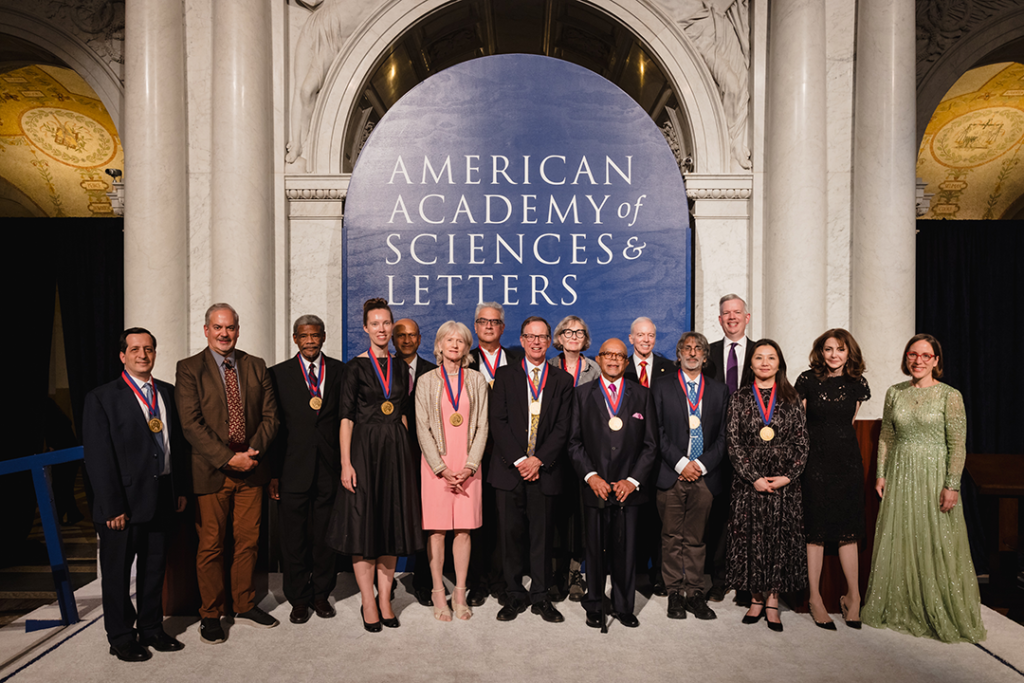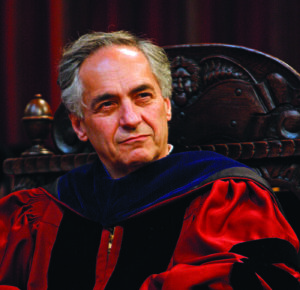Barry Prize for Distinguished Intellectual Achievement
The Barry Prize for Distinguished Intellectual Achievement is the Academy’s premier recognition of excellence in scholarship. This prestigious annual prize, open to scholars across diverse fields and disciplines, honors those whose work has made outstanding contributions to humanity’s knowledge, appreciation, and cultivation of the good, the true, and the beautiful. Recipients are nominated by the members of the Academy and appointed by the board of directors. Winners of the Barry Prize receive a cash award and also become members of the Academy.

Robert J. Zimmer Medal for Intellectual Freedom
The Academy’s Robert J. Zimmer Medal for Intellectual Freedom, named for the late President of the University of Chicago and a stalwart defender of academic freedom, is presented annually to a public thinker who displays extraordinary courage in the exercise of intellectual freedom.
View President Donald Landry describing the history and purpose of the Robert J. Zimmer Medal here.
ABOUT ROBERT ZIMMER

From 2006 to 2021, Robert J. Zimmer served as president of the University of Chicago. He had taught mathematics at Chicago and other institutions starting in 1975, lending his name to the field of geometry through such contributions as “Zimmer’s cocycle superrigidity theorem.” As president, Zimmer led the University of Chicago through important reforms and initiatives, such as replacing all loans with grants and scholarships in student aid packages, and the creation of the university’s first engineering program. Applications to Chicago tripled during his presidency.
Zimmer’s greatest legacy is his leadership in the restoration and defense of intellectual freedom in the American university. At a time when many schools were compromising the rights to freedom of thought that are at the core of the university’s educational mission, Zimmer emerged as a key champion of open inquiry. He led the creation of the Chicago Principles, affirming as foundational to the university the right of students and faculty to say what they think.
The Principles – adopted by schools across the country – quote Robert M. Hutchins (Chicago president, 1929-45):
Free inquiry is indispensable to the good life.
Universities exist for the sake of such inquiry.
Without it, they cease to be universities.
The image that adorns the medal is from a photograph (above) taken by then-student Eric Guo during the University of Chicago’s 500th convocation ceremony in October 2009.
The Academy is proud to honor Zimmer by awarding the Robert J. Zimmer Medal for Intellectual Freedom in his name.

